Amy Stephens
MS, RDN, CSSD, CEDS
Licensed dietitian
specializing in sports nutrition
and eating disorders
MS, RDN, CSSD, CEDS
Licensed dietitian
specializing in sports nutrition
and eating disorders
The way you nourish your body is equally important as your training and strength exercises. As a sports nutritionist based in NYC, I frequently encounter questions regarding dietary recommendations for individuals preparing for a marathon. In collaboration with my intern, Sara Fischer, we have developed this guide specifically tailored to individuals participating in the NYC marathon or any fall marathon, providing valuable insights on how to fuel your body leading up to the 26.2-mile journey.
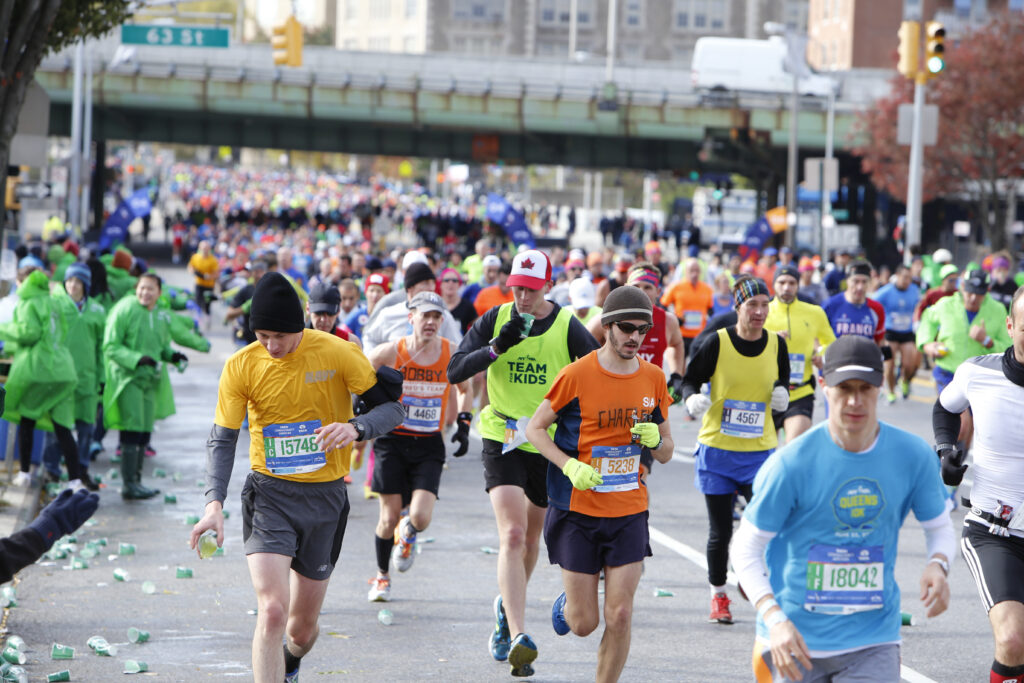
What to eat
CALORIES:
Energy requirements are not static throughout a marathon training block. As the training volume intensifies, higher levels of nutrients become essential. The energy demands may be less on recovery days, but it is equally important to continue fueling to restock glycogen and repair muscle tissue.
A common mistake is to underfuel on recovery days. Recovery days require an adequate amount of nutrients to help the body recover for the next workout. Energy is required for cross-training, daily activities such as attending work or class, errands, or commuting. It’s possible that you may not require as many snacks during these lower intense periods.
CARBOHYDRATES:
Runners need to focus on a carbohydrate rich diet. If you are training for a marathon, you are spending most of your time either recovering from a run, or preparing for another one. Since running requires glucose from the bloodstream, your body is in need of carbohydrates to replenish those glycogen stores after workouts. Runners should aim for 60-70% of their calories from carbohydrates.
Over time, with adequate carbohydrates, the body gradually increases the amount of glycogen that can be stored in muscles and liver. Proper fueling throughout training can increase your overall glycogen storage capacity. Glycogen is one way to help prevent “hitting the wall”. This occurs when runners have not properly trained, run too fast on race day or under fuel on race day.
In order to maximize glycogen stores, runners should aim to consume 7-10 grams of carbohydrates per kilogram of body weight, daily. The average runner should aim for 475-700 g/day. This can be met by eating carb-rich meals spread into three meals plus two-to-three snacks.
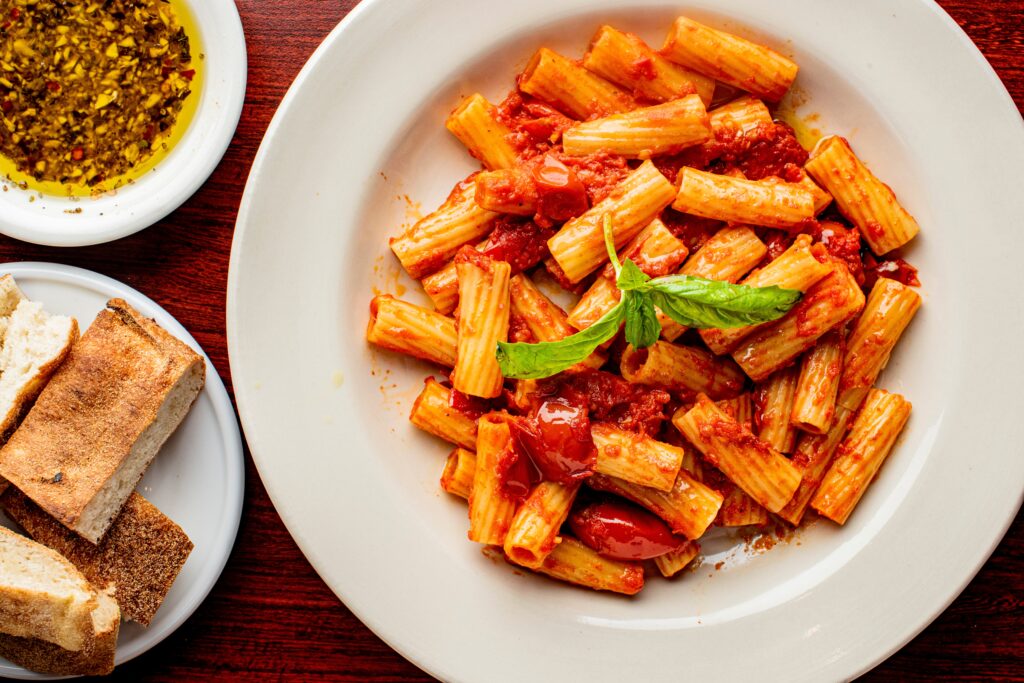
PROTEIN:
Protein is broken down into amino acids which are essential for building and repairing damaged tissue. Eating protein throughout the day is also helpful to maintain the immune system and prevent muscle breakdown. Eating too much protein can displace other important nutrients that are necessary to optimize sports performance. Aim for 1.5-1.7 grams protein/kilogram which is about 20-30 grams with meals and 10-15 grams for snacks.
HEALTHY FATS:
It is crucial that runners include healthy fats in their diet. Healthy fats are necessary to absorb fat soluble vitamins, they help to lower injury risk, and regulate energy levels. Healthy fats are a great source of omega-3’s which have been shown to reduce inflammation. In order to keep the diet balanced, aim for approximately 20-30% of calories from fats.
VITAMINS:
Runners need to make sure they are giving their bodies adequate vitamins. Vitamin D and Calcium are particularly important for bone health, specifically reducing the risk of stress fractures. Iron is important to keep you energized. Iron deficiency can lead to decreases in performance. B vitamins are essential to energy production.
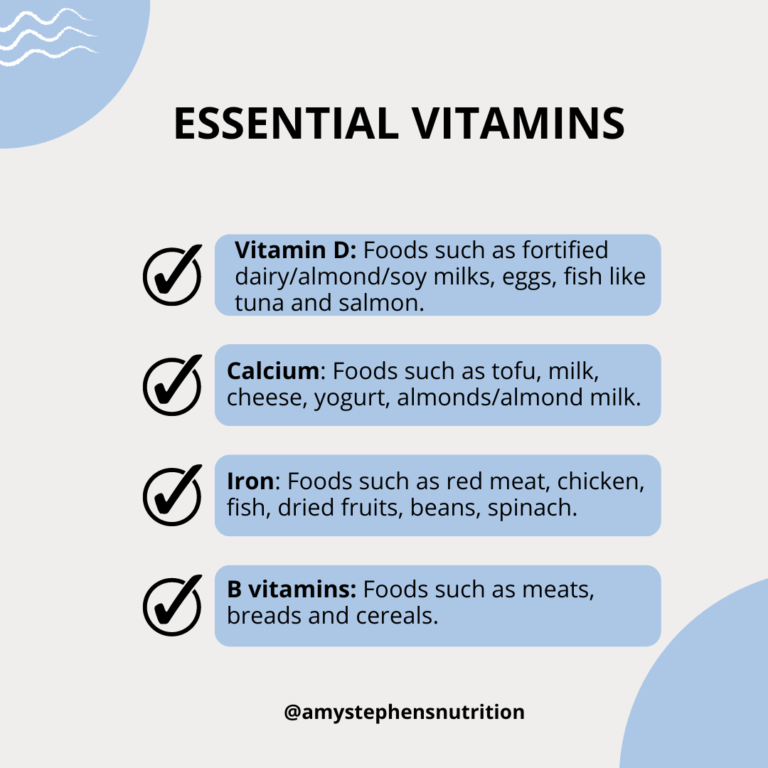
How to eat around your workouts
Before a run, especially if the run is 60 minutes or longer, your body will need fuel beforehand. Your pre-run snack should be rich in carbohydrates, and eaten at least 30 mins to an hour before you head out. Avoid high fiber foods as they are difficult to digest and may lead to discomfort during the workout.
For runs lasting less than 60 minutes, fueling is optional. If you experience hunger, consuming snacks and fluids can be beneficial for sustaining energy levels.
For a run lasting longer than 90 minutes, your body might need additional carbohydrates. Your body processes approximately 60g carbs per hour of exercise, so during these longer sessions you will need to start fueling within 45 minutes, and continue to consume 30-60g carbs/hour for the duration of the run.
After a run, your body needs to replenish its glycogen stores. Refuel after runs by eating a balanced meal or snack high in protein and carbs. It is best to eat this within 30 minutes to an hour of finishing a run, so that you can kick start the recovery process and be ready to go for your next session. Prioritize recovery food especially on tough workout days or if you are planning a double workout session.
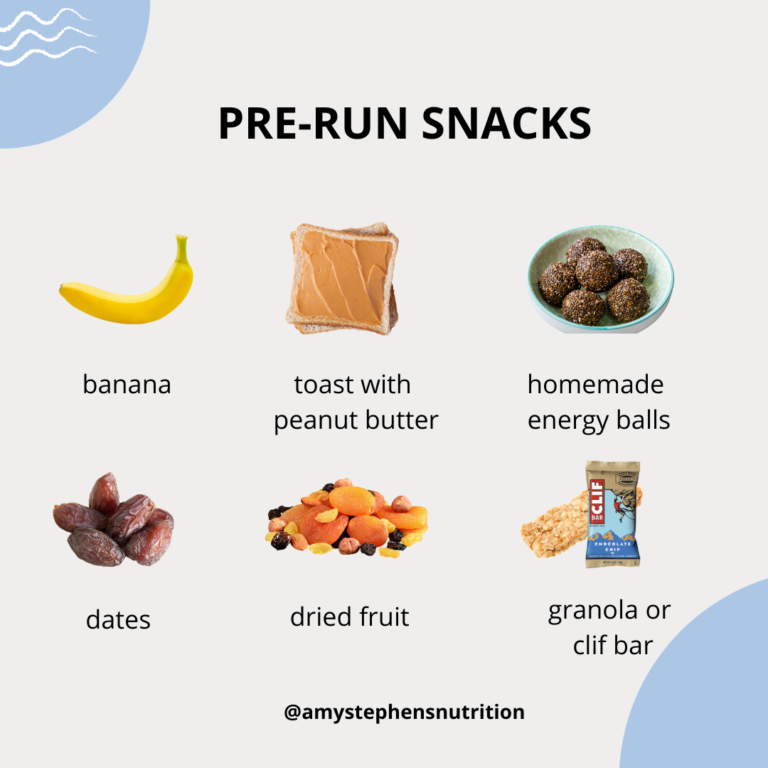
How to hydrate
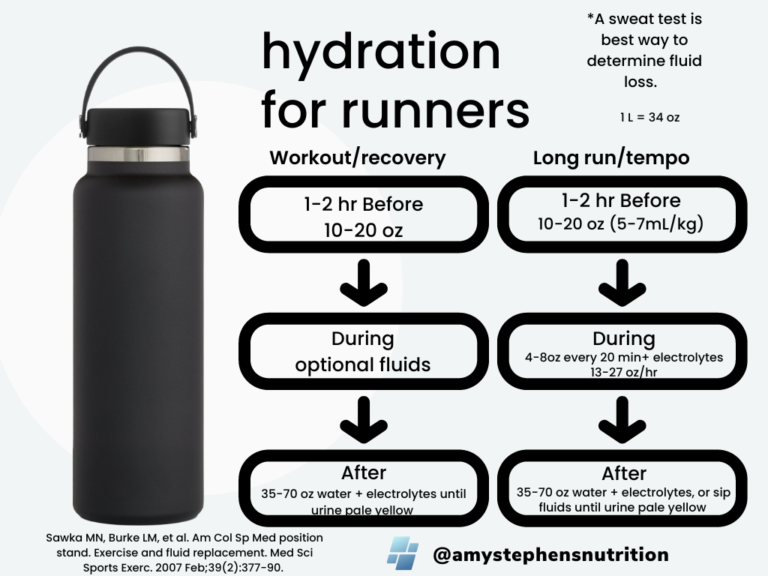
References
Burke L, Hawley J, Wong S & Jeukendrup A. Carbohydrates for training and competition, J Sp Sc, 2011. 29:sup1, S17-S27.
Coyle, E. F. Fluid and fuel intake during exercise. J Sp Sc 2004. 22: 39–55.
Jeukendrup, A. E. and Chambers. Oral carbohydrate sensing and exercise performance. Current Opinion in Clinical Nutrition and Metabolic Care, 2010. 13: 447–451.
Sawka MN, et al. American College of Sports Medicine position stand. Exercise and fluid replacement. Med Sci Sports Exerc. 2007. 39(2):377-90.